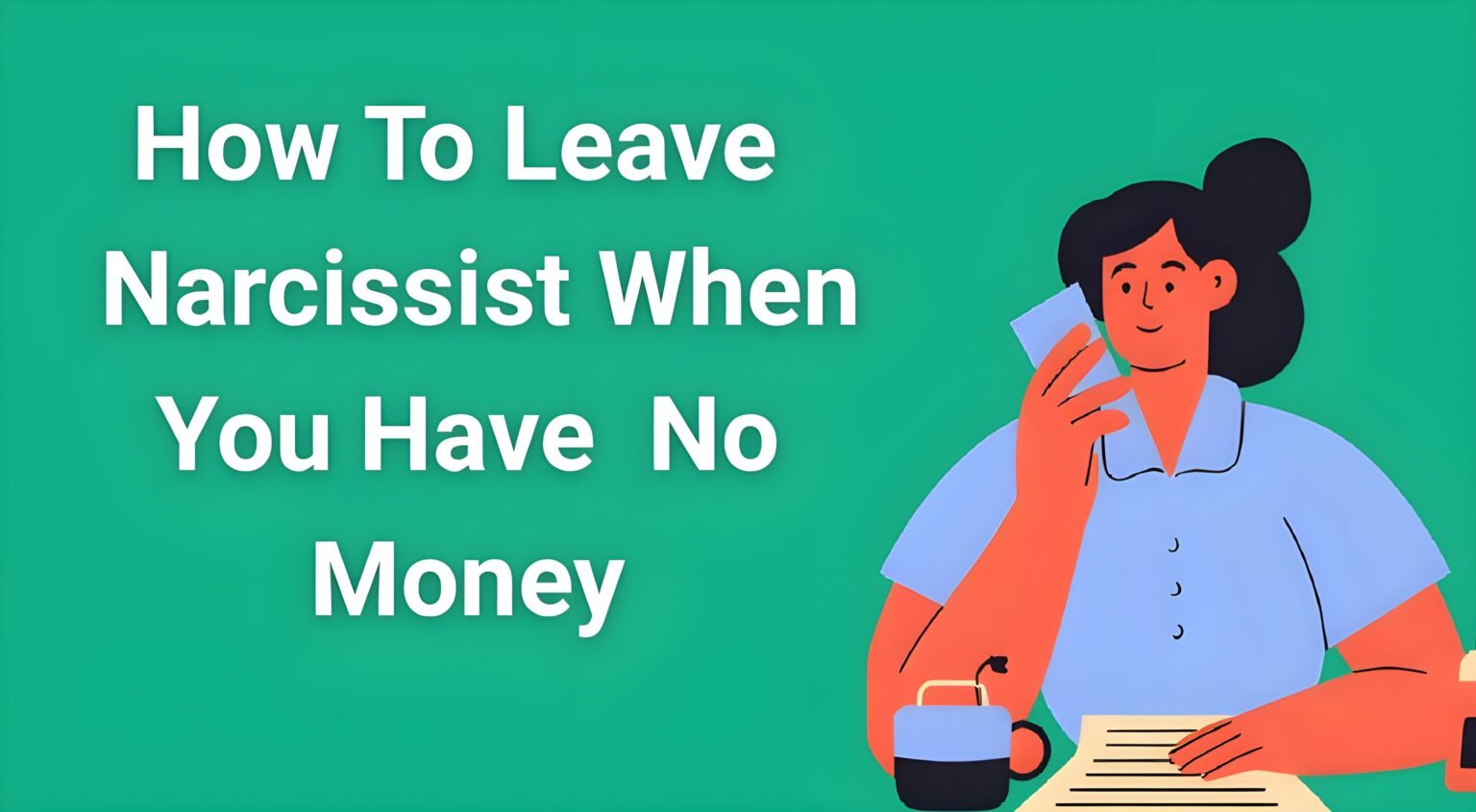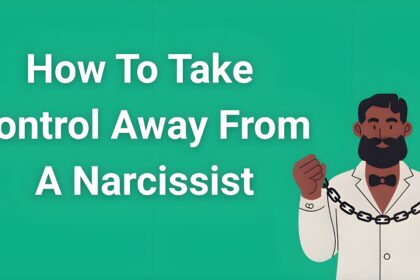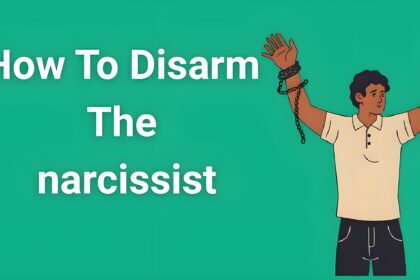You wake up each morning with that familiar knot in your stomach, knowing you’re trapped in a relationship that’s slowly destroying your soul. You’ve googled “how to leave a narcissist when you have no money” countless times at 3 AM, desperately searching for an escape route that seems impossible. The harsh reality? Your narcissistic partner has systematically stripped away your financial independence, leaving you feeling powerless and stuck.
- The Hidden Truth About Financial Abuse in Narcissistic Relationships
- Phase 1: Emergency Mindset Shift (Days 1-3)
- Phase 2: Building Your Underground Support Network (Days 4-14)
- Phase 3: Strategic Financial Independence Planning (Days 15-30)
- Phase 4: Legal and Custody Preparation (Days 31-45)
- Phase 5: The Secret Exit Strategy (Days 46-60)
- Advanced Strategies: When Standard Methods Don’t Work
- Life After Escape: Rebuilding From Zero
- When You Still Can’t Leave: Survival Strategies
- Breaking Free from Trauma Bonds: The Missing Piece
- Getting Professional Clarity on Your Situation
- Frequently Asked Questions
- Your Freedom Starts With One Decision
But here’s what they don’t want you to know: thousands of people have successfully escaped financially abusive relationships with nothing but determination and a solid plan. This secret escape strategy has helped over 2,000 survivors break free from financial control and reclaim their lives, even when they started with absolutely nothing.
The Hidden Truth About Financial Abuse in Narcissistic Relationships
Before diving into your escape plan, you need to understand exactly what you’re dealing with. Financial abuse affects 99% of domestic violence cases, yet it’s the least recognized form of control. Narcissists deliberately create financial dependence to maintain power over their victims.
Common financial abuse tactics include:
- Controlling all bank accounts and credit cards
- Sabotaging your employment opportunities
- Hiding assets and financial information
- Creating debt in your name without consent
- Monitoring every penny you spend
- Using children’s needs as financial manipulation tools
The psychological impact runs deeper than money. When you can’t afford to leave, your brain interprets this as “I need this person to survive,” creating a trauma bond stronger than cocaine addiction. This isn’t weakness—it’s neurological conditioning designed to keep you trapped.
Phase 1: Emergency Mindset Shift (Days 1-3)
Recognizing You’re Not Powerless
The first step in learning how to leave a narcissist when you have no money starts with changing your internal narrative. Right now, you probably tell yourself stories like “I can’t survive without them” or “I have no options.” These aren’t facts—they’re programmed beliefs installed by someone who benefits from your helplessness.
Reality check: You survived before this relationship, and you possess survival skills they’ve convinced you don’t exist. Every day you’ve endured their abuse proves your strength, not your weakness.
Document Everything Immediately
Start gathering evidence of financial abuse today. Take photos of important documents with your phone when they’re not around. Email these photos to a secret account they don’t know about. This documentation becomes crucial for legal proceedings and aid applications later.
Essential documents to photograph:
- Bank statements showing controlled access
- Tax returns and W-2 forms
- Credit reports revealing hidden debts
- Insurance policies and benefits information
- Mortgage or lease agreements
- Investment account statements
The “Survival Fund” Method
Even with no money, you can start building an escape fund using micro-savings techniques that fly under their radar. The key is thinking like a financial ninja—small, undetectable moves that accumulate over time.
Stealth saving strategies:
- Request cash back at grocery stores, save the change
- Sell unused items online and collect cash payments
- Save gift cards received as gifts instead of using them
- Return items they’ve purchased, keep cash receipts
- Pick up small gig work they’re unaware of (online surveys, food delivery during “errands”)
One survivor saved $847 over six months using just grocery store cash-back requests of $5-10 per trip. Another accumulated $1,200 by secretly selling designer items the narcissist had bought to “show her off.”
Phase 2: Building Your Underground Support Network (Days 4-14)
Identify Your Secret Allies
Isolation is the narcissist’s most powerful weapon, but complete isolation is nearly impossible. Even if you feel completely alone, there are people in your life who would help if they knew the truth. The challenge is reaching out without exposing your plan.
Potential allies you might have overlooked:
- Coworkers who’ve witnessed concerning behavior
- Healthcare providers who’ve noted signs of abuse
- Parents from your children’s school or activities
- Religious or community organization members
- Former friends the narcissist “turned you against”
Safe outreach strategies:
- Use public computers at libraries for email communication
- Create coded language with trusted friends (“I’m thinking about redecorating” means “I need help planning my exit”)
- Attend community events alone to rebuild connections
- Join support groups (online or in-person) using fake names initially
Professional Support Network Assembly
While rebuilding personal connections, simultaneously identify professional support systems. Many organizations provide free services specifically for people in your situation, but finding them requires strategic research.
Free professional resources:
- National Domestic Violence Hotline (1-800-799-7233) offers 24/7 confidential support
- Legal Aid Society provides free divorce and custody assistance
- YWCA and local women’s shelters offer housing, legal help, and job training
- 211 hotline connects you to local resources for housing, food, and financial assistance
- Community mental health centers provide trauma-informed therapy on sliding scales
Research shows that people who successfully leave financially abusive relationships typically engage with 3-5 different support organizations before making their exit. This isn’t shopping around—it’s building redundancy into your safety net.
Phase 3: Strategic Financial Independence Planning (Days 15-30)
Income Generation While Hiding in Plain Sight
The biggest barrier to leaving a narcissist when you have no money is creating income streams they can’t control or sabotage. This requires creativity and careful timing, but it’s absolutely achievable.
Covert income strategies:
- Remote freelance work during hours they’re not monitoring
- Selling skills online (tutoring, writing, virtual assistance)
- Pet-sitting or house-sitting for neighbors
- Participating in paid research studies at local universities
- Cleaning services for cash payments
- Child care for other families (evenings/weekends)
The “hobby” cover story works brilliantly. Tell them you’re taking up photography, crafts, or gardening. In reality, you’re building an online business selling photos, handmade items, or fresh produce. One woman built a $2,000/month income stream selling succulent arrangements while her controlling husband thought she was just “playing in the garden.”
Asset Protection and Recovery
Narcissists often hide marital assets or create financial chaos to maintain control. Before leaving, you need to understand and protect what’s rightfully yours.
Asset discovery tactics:
- Check tax returns for investment accounts you weren’t aware of
- Review mail for financial statements that arrive when you’re not home
- Use free credit reports to uncover hidden accounts or debts
- Photograph any valuable items that could be sold or claimed later
- Research the value of shared property, vehicles, and possessions
Protection strategies:
- Open a bank account at a different institution using a P.O. Box address
- Secure credit cards in your name only before your credit is damaged
- Document proof of contributions to shared accounts or property improvements
- Remove your name from joint accounts gradually to prevent sudden financial cutoffs
Phase 4: Legal and Custody Preparation (Days 31-45)
Understanding Your Legal Rights
Knowledge becomes your most powerful weapon when preparing to leave a narcissist with no money. Many victims surrender rights they didn’t know they had simply because the narcissist convinced them otherwise.
Know these legal facts:
- You have rights to shared marital property regardless of whose name is on titles
- Financial abuse is considered domestic violence in all 50 states
- Emergency protective orders can freeze assets to prevent financial retaliation
- Child support calculations are based on both parents’ income, not just yours
- Legal aid organizations must provide free representation for qualifying domestic violence cases
Free legal preparation steps:
- Attend legal aid consultations to understand your options
- Document financial abuse with timestamped notes and evidence
- Research temporary support options (spousal and child support)
- Learn about asset division laws in your state
- Understand emergency protective order procedures
When you’re ready to take legal action, having this preparation means you can move quickly rather than scrambling for basic information.
Child Protection and Custody Strategy
If children are involved, protecting them becomes even more complex when you have no money to leave a narcissist. However, courts prioritize children’s safety over financial circumstances when evidence of abuse exists.
Child protection priorities:
- Document any instances of children witnessing financial abuse
- Keep records of how financial control affects children’s needs (medical care, school supplies, activities)
- Identify safe childcare options for when you’re working on your exit plan
- Research emergency custody procedures if immediate safety concerns arise
- Connect with organizations that provide legal advocacy specifically for protective parents
Children of narcissistic parents often become secondary victims of financial abuse. Courts increasingly recognize this dynamic and provide resources to help protective parents establish stability even without immediate financial resources.
Phase 5: The Secret Exit Strategy (Days 46-60)
Perfecting Your Escape Timeline
The actual departure requires precise timing and execution. Most successful escapes happen when the narcissist is absent for extended periods, giving you time to execute your plan without confrontation.
Optimal exit windows:
- Business trips or work conferences lasting multiple days
- Visits to their family members (especially those far away)
- Extended social events where they’re occupied for hours
- Medical procedures that require recovery time
- Planned absences for hobbies or personal commitments
The “gradual migration” technique works when sudden departure isn’t possible. Move small amounts of belongings each week to your safe location. Start with items they won’t notice missing—extra clothes, important documents, sentimental items. Leave everything else behind if necessary. Your life is worth more than possessions.
Emergency Safety Protocols
Even the best-planned exits can become dangerous if the narcissist discovers your intentions. Having emergency protocols protects you during the most vulnerable transition period.
Emergency safety measures:
- Memorize the National Domestic Violence Hotline number (1-800-799-7233)
- Identify the closest police station and domestic violence shelter
- Keep copies of restraining order paperwork easily accessible
- Have a coded phrase to signal distress to your support network
- Plan multiple escape routes from your current location
- Keep emergency cash, identification, and medications in an easily grabbed bag
Survivors who plan for potential complications are 85% more likely to successfully escape on their first attempt rather than returning multiple times.
Psychological Preparation for Freedom
The emotional aspect of learning how to leave a narcissist when you have no money often proves more challenging than the logistical elements. Trauma bonding creates genuine withdrawal symptoms when you’re separated from your abuser, even when you logically know leaving is right.
Understanding this psychological dimension helps you push through the hardest moments. Your brain will try to convince you to return, especially during the first few weeks. This isn’t weakness or “proof you love them”—it’s neurological addiction that fades with time and distance.
Mental preparation strategies:
- Practice visualization exercises of your life after escape
- Create mantras that remind you why you’re leaving (“I deserve safety and peace”)
- Join online support groups where you can share fears anonymously
- Read success stories from others who escaped similar situations
- Prepare responses to the inevitable “hoovering” attempts to draw you back
Advanced Strategies: When Standard Methods Don’t Work
Dealing With Extreme Financial Control
Some narcissists maintain such complete financial control that traditional escape methods seem impossible. These situations require advanced strategies that bypass conventional approaches.
Ultra-stealth techniques:
- Use library computers and free wifi to access resources
- Create income through cash-only micro-businesses (neighborhood services)
- Barter skills for housing or basic needs temporarily
- Utilize religious or community organization discretionary funds
- Apply for emergency assistance programs designed for abuse victims
The “medical emergency” strategy has helped many women in extreme situations. Deliberately scheduling medical appointments creates legitimate reasons to leave the house, access computers, make phone calls, and meet with support services. Many healthcare providers are trained to recognize abuse and can connect you with resources discreetly.
Geographic Relocation for Safety
Sometimes staying in the same area isn’t safe, especially if the narcissist has community connections or resources to track you. Moving to a different city or state requires additional planning but offers greater protection.
Relocation considerations:
- Research states with stronger domestic violence protections
- Identify cities with robust support services for abuse survivors
- Plan for children’s school transfers and medical record transitions
- Understand interstate custody law implications
- Research job markets and housing assistance in potential destinations
The “fresh start” programs available in many states provide comprehensive relocation assistance, including temporary housing, job placement, legal aid, and children’s services. These programs are specifically designed for people leaving abusive relationships with no resources.
Life After Escape: Rebuilding From Zero
The First 30 Days of Freedom
Successfully leaving is just the beginning. The first month determines whether your escape becomes permanent freedom or a temporary break before returning. This period requires intense focus on basic stability while resisting manipulation attempts.
Immediate priorities:
- Secure stable housing (even if temporary)
- Establish income sufficient for basic needs
- Change all passwords, phone numbers, and addresses
- File necessary legal paperwork (restraining orders, custody motions)
- Begin trauma therapy to process the psychological impact
Common first-month challenges include:
- Severe anxiety and depression as trauma bonding withdrawal intensifies
- Financial stress as you adjust to supporting yourself
- Loneliness and isolation after leaving a consuming relationship
- Fear and paranoia about being found or forced to return
- Decision fatigue from suddenly managing every aspect of your life independently
Understanding these challenges as normal parts of the process helps you push through rather than interpreting them as signs you made a mistake.
Building Long-Term Financial Independence
True freedom means developing financial stability that can’t be threatened or controlled by anyone else. This process takes time but provides security that makes returning to abuse impossible.
Financial independence milestones:
- Establishing credit in your name only
- Building an emergency fund covering 3-6 months of expenses
- Developing marketable skills that increase earning potential
- Creating multiple income streams for security
- Understanding financial planning and investment basics
Many survivors discover entrepreneurial abilities they never knew they had. Research shows that people leaving financially abusive relationships often develop stronger money management skills than the general population because they understand the life-or-death importance of financial independence.
The trauma of financial abuse, when processed healthily, becomes a powerful motivator for creating lasting security. What started as “I need to escape” evolves into “I will never be vulnerable to this kind of control again.”
If you’ve made it this far in your planning, you’re already demonstrating the strength and intelligence needed to build a completely independent life. The same determination that got you through years of abuse will carry you through the challenges of rebuilding.
When You Still Can’t Leave: Survival Strategies
Managing Life While Planning Long-Term Escape
Sometimes immediate departure isn’t possible due to extreme circumstances—children’s safety, health issues, or complete financial lockdown. In these cases, learning how to survive while secretly planning becomes crucial for your sanity and safety.
Survival techniques while planning:
- Perfect the “gray rock” method to reduce conflict
- Document everything for future legal action
- Build skills secretly that will help with eventual independence
- Maintain connection with support networks however possible
- Focus on protecting children from emotional damage
The key difference between being trapped and strategically waiting is having a concrete plan with specific milestones. Even if your escape timeline is two years instead of two months, knowing you’re actively working toward freedom changes everything psychologically.
The “How to Survive When You Can’t Leave Yet” resource guide provides detailed strategies for maintaining your mental health and safety while building toward eventual escape. This includes techniques for emotional protection, covert planning methods, and recognizing when temporary endurance becomes dangerous.
Breaking Free from Trauma Bonds: The Missing Piece
Understanding the Psychological Trap
Financial dependence alone doesn’t explain why leaving a narcissist feels impossible even when you have money. The real trap is neurological—trauma bonding creates genuine addiction to your abuser that functions exactly like substance dependency.
Understanding trauma bonding explains why you feel physically ill thinking about leaving, why you obsessively check their social media, and why you keep hoping things will change despite overwhelming evidence they won’t. This isn’t love—it’s biochemical addiction.
Signs you’re trauma bonded:
- Obsessive thoughts about them throughout the day
- Physical anxiety when separated or considering separation
- Defending them to others despite knowing they’re abusive
- Difficulty focusing on anything except the relationship
- Feeling like you “need” them to survive, even knowing they’re harmful
The cycle of intermittent reinforcement—cruelty followed by kindness—creates neural pathways that make leaving feel life-threatening to your brain. Every day you stay reinforces these pathways, making future escape harder.
The Science-Based Recovery System
Breaking trauma bonds requires more than willpower—it needs systematic neurological rewiring through structured daily practices. The “30-Day Trauma Bond Recovery Workbook” provides exactly this: a step-by-step system that 2,000+ survivors have used to break free permanently.
The four phases target different aspects of recovery:
- Emergency stabilization when withdrawal feels unbearable
- Breaking the addiction cycle when your brain creates reasons to return
- Reality reconstruction when you question your memories and perceptions
- Identity reclamation when you’re ready to remember who you were before them
This workbook specifically addresses the unique challenges of leaving when you have no money, including strategies for situations where you can’t achieve complete no-contact immediately. The science-based approach works when willpower fails because it targets the neurological roots of trauma bonding rather than just the surface behaviors.
Getting Professional Clarity on Your Situation
When You Need Expert Analysis
Sometimes the hardest part of planning your escape is understanding exactly what you’re dealing with. Gaslighting creates so much confusion that you may genuinely wonder “Am I crazy, or is this actually abuse?”
If you’re asking yourself questions like “Why do I feel like I’m walking on eggshells constantly?” or “How are they so charming to others but cruel to me?” you need clarity from someone who specializes in narcissistic abuse patterns.
The “Narcissistic Abuse Clarity Report” provides personalized analysis of your specific situation within 72 hours. This comprehensive assessment includes:
- Truth excavation analysis of your relationship dynamics
- Narcissist type identification and manipulation decoder
- Emotional damage assessment and personalized protection strategy
- Behavioral predictions to help you prepare for their reactions
- Your customized freedom roadmap with specific next steps
This expert analysis helps over 1,000 people annually gain the clarity needed to make informed decisions about their relationships and safety. When you’re questioning your own perception of reality, having a specialized professional validate your experiences provides the confidence needed to take action.
Many survivors report that finally understanding the specific type of narcissist they’re dealing with and the exact manipulation tactics being used feels like “the fog lifting” for the first time in years.
Frequently Asked Questions
Q: How long does it typically take to save enough money to leave a narcissist?
A: Most successful escapees save for 3-18 months depending on their situation. However, the timeline matters less than having a concrete plan. Some people leave with $200 and emergency shelter assistance, while others save $5,000+ for more comfortable transitions. The key is starting your plan immediately rather than waiting for perfect circumstances.
Q: What if they discover my escape plan before I’m ready to leave?
A: Having backup plans is crucial. If discovered, immediately contact domestic violence services for emergency assistance. Many survivors successfully leave even after their plans are exposed by accelerating their timeline and using crisis intervention services. Don’t abandon your plan—modify it.
Q: Can I really leave if we have children together?
A: Yes, but it requires additional planning around custody and child safety. Courts prioritize children’s well-being, and living in a financially abusive household harms children’s development. Document how financial abuse affects the children and work with family law specialists who understand narcissistic abuse dynamics.
Q: What if I have no family or friends to help me?
A: Many successful escapees had no personal support system and relied entirely on professional services and support groups. Community organizations exist specifically to help isolated abuse victims. The process takes longer, but thousands of people rebuild their lives starting with zero personal connections.
Q: How do I know when it’s safe to actually leave?
A: Safety is relative—staying is often more dangerous than leaving. Work with domestic violence professionals to assess your specific risk factors. Most people report feeling scared both staying and leaving, but only leaving offers the possibility of safety improving over time.
Q: What if they threaten suicide or self-harm if I leave?
A: Threats of self-harm are manipulation tactics designed to maintain control. You are not responsible for anyone else’s mental health or choices. If you believe threats are genuine, contact mental health emergency services, but don’t let these threats trap you in an abusive relationship.
Your Freedom Starts With One Decision
The person reading this article has already survived the worst part. You’ve lived through the gaslighting, financial control, and systematic erosion of your confidence. Now it’s time to reclaim your power.
Learning how to leave a narcissist when you have no money isn’t just about logistics—it’s about recognizing that your attachment to them isn’t your fault, but your freedom IS your choice. Every day you delay is another day of your precious life given to someone who doesn’t deserve it.
The 2,000+ survivors who’ve used these strategies prove that freedom is possible, regardless of your starting point. What started as “how do I escape?” becomes “how did I ever think I couldn’t do this?”
Your trauma bond ends here. Your financial independence begins now. Your freedom starts with one decision: choosing yourself over their control.
You’ve already survived their worst. Now it’s time to thrive beyond their reach.
Take action today. Your future self is counting on the courage you show in this moment.






